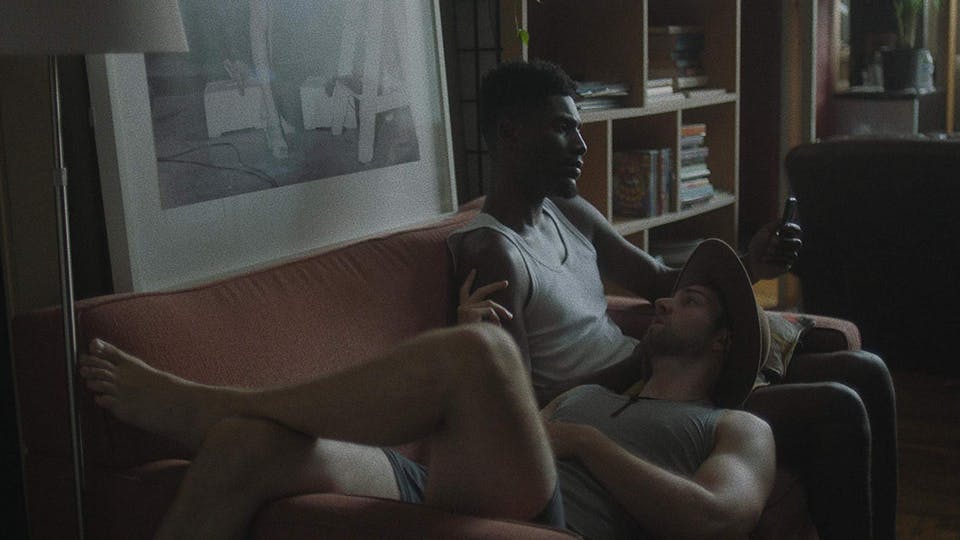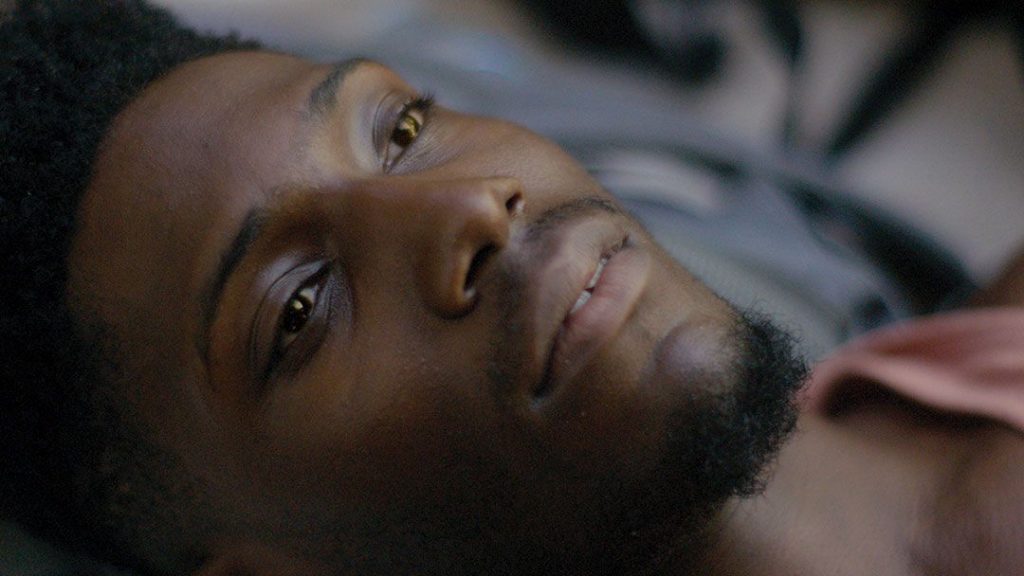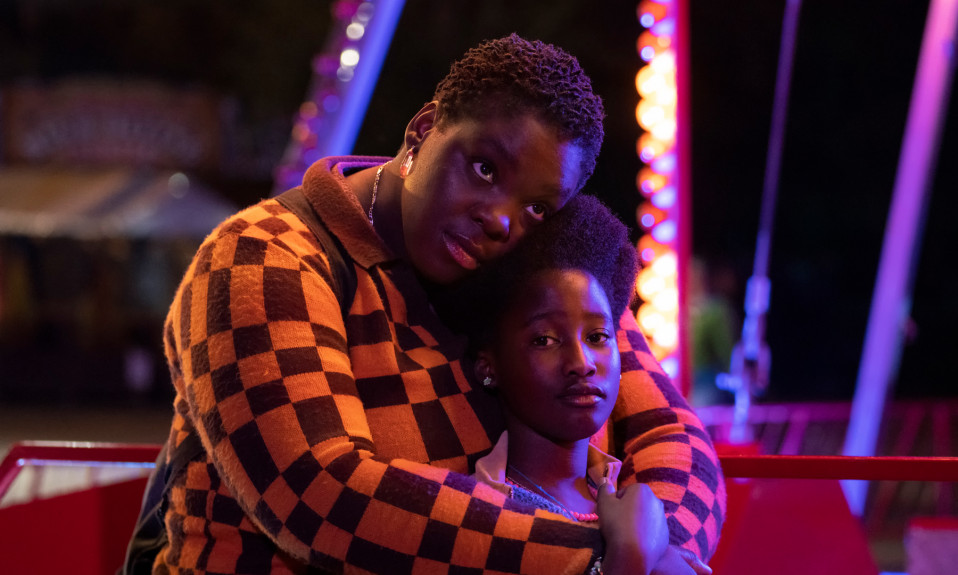Matthew Fifer’s directorial debut struggles with difficult material.
What happened to the web series? For one brief and shining moment, around the early 2010s, it was flourishing. It gave us creators like Issa Rae, Desiree Akhavan, Abbi Jacobson, and Ilana Glazer. It seemed ripe for the picking of talented individuals who had stuck their middle finger up at the perceived norms and taken their fate into their own hands instead of that of older white dudes who handed out the cash. In 2016, Matthew Fifer debuted his web series, Jay and Pluto, after a successful Kickstarter campaign and now he returns with Cicada, a meditation on the impact of trauma.
The film, co-directed by Kieran McClure, follows Ben (Fifer), a bisexual man going through the motions in New York City, painting apartments for West Side “DILFS”, and seeing the doctor for nausea that can’t be explained as he repeatedly vomits in the morning seemingly to expel something. After a broken engagement he is, as his sister refers to it, “back on the dick”, meeting (mostly) men online, in work, at clubs, on the subway platform, in the bathrooms of bars. Ben hasn’t been out for long, due to trauma he refuses to deal with from his past, and admits that he has never been able to be truly intimate with someone without being drunk or high. This is until he meets Sam (Sheldon D. Brown) while browsing at a bookstore. It isn’t clear what makes Sam different, why Ben decides to ask him for a drink rather than a fuck, but the two begin to bond and slowly fall into the regular patterns of a relationship.
One night Sam asks Ben about his first time with a man. At first, Ben is cagey, describing the experience of Kirsten Dunst in The Virgin Suicides, left alone on the football pitch when he awoke in the morning, rather than his own experience but Sam persists. Ben, reluctantly admits he was “young” and leaves it at that, but Sam understands the implications. The film focuses itself mostly around this issue; how do those with trauma try to move on? Both men are carrying it, as Sam is reluctant to hold hands or kiss in public due to being the victim of a homophobic drive-by and we see flashes back to Ben’s childhood aware that something happened there that he can’t let go of.

Cicada, an autobiographical story from Fifer’s own life, seeks to understand how this trauma manifests in both men. Ben is seemingly doing great with Sam, he wants to be committed and, for some reason, no longer needs substances to do that, yet he’s haunted by an ongoing molestation trial that is all over the news. Sam, however, lashes out when he feels like he’s not in control. First, when Ben shows up to his place of work with flowers and, second, when Ben introduces him to his friends, Sam picks a fight as things are becoming “real”. This is most likely related to his father, to whom he is not out, and the internalised homophobia he is harbouring since his attack.
Trauma and its effects have been depicted more commonly in film over the past few years, and Cicada joins a recent few that don’t aim for sensationalism but rather work to explore that experience realistically. For example, Jennifer Fox’s experimental and ground-breaking film The Tale told the story of the sexual abuse she faced as a young girl, and Jennifer Kent’s The Nightingale followed a traumatised woman who was seeking revenge. All of these are creating a new wave in cinema, led by women and minorities, that refuses to be silent about the things that make us, as a society, uncomfortable. However, engaging in discussions of sexual abuse with the realm of queerdom navigates some tricky optics, ones that have to contend with decades of pseudoscience that have tried to link the two. In its personal focus, it feels like Cicada never reaches to make a grand statement about queer people, but it also doesn’t feel like it has fully considered where this conversation might go.

This is all fascinating territory and, as a film, it is a bold choice to try and engage with it, yet it doesn’t quite all come together. Still, that doesn’t mean it isn’t affecting in various ways; it just doesn’t rise to the severity of its subject matter. It’s ending feels a little neat for a story about how trauma manifests and its script, at times, can feel a little by-the-book, especially during the early scenes of Ben and Sam’s relationship. It all feels somewhat trapped within that millennials-in-New-York-style indie movie that has risen in popularity since the premiere of Lena Dunham’s GIRLS in 2013 (though it’s definitely one of the better ones).
Cicada is a strong debut for Fifer and his team. It made me wonder what they could achieve with a bigger budget and more time. Fifer has managed to navigate that tricky terrain from the internet to the big screen and has been able to manifest something emotional, artful, and thought-provoking. As is typical for debuts, it’s imperfect but shows promise. It asks a lot of questions but doesn’t quite find every answer. It’s bold, yet limited, but what comes next is something to keep an eye on.
Rating:  (3 / 5)
(3 / 5)
Cicada has yet to be given a UK release date.
Also Read: How Film Changed Me: On the Value of Youth





![Online Film Festivals [Source Freepik and Wikipedia]](https://bigpicturefilmclub.com/wp-content/uploads/2021/01/online-film-festivals-Source-Freepik-and-Wikipedia-958x575.jpeg)








